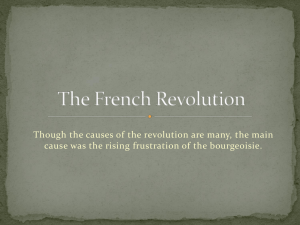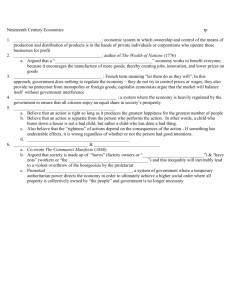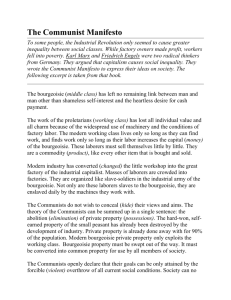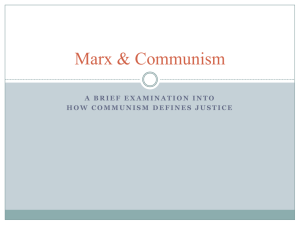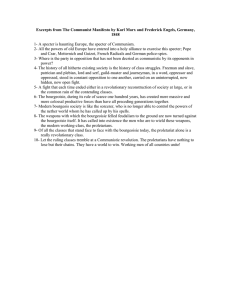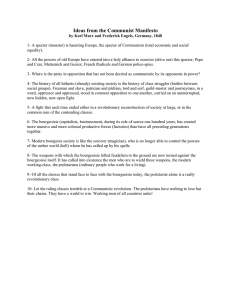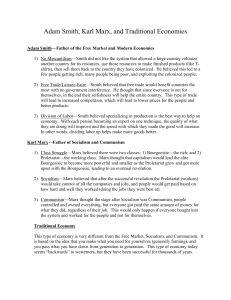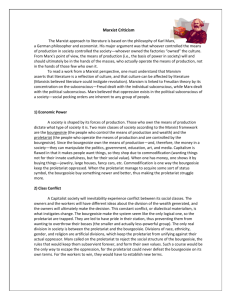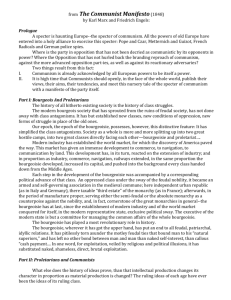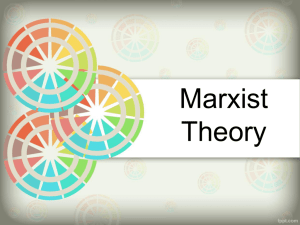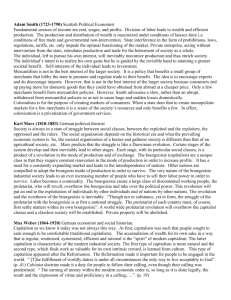From Karl Marx
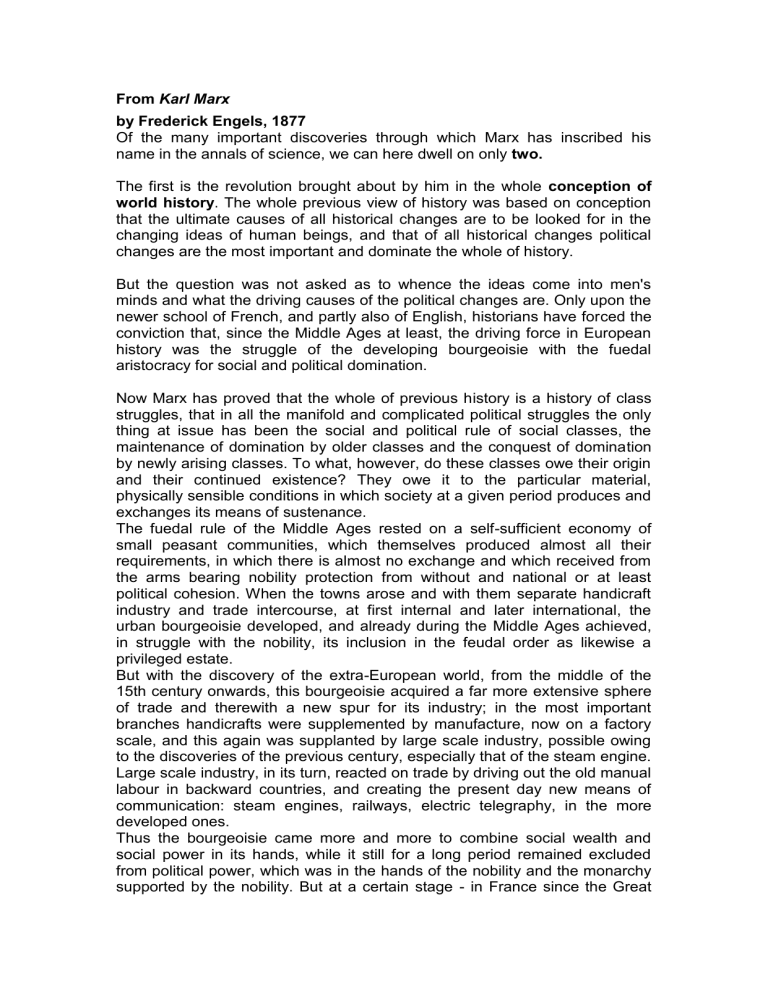
From Karl Marx by Frederick Engels, 1877
Of the many important discoveries through which Marx has inscribed his name in the annals of science, we can here dwell on only two.
The first is the revolution brought about by him in the whole conception of world history . The whole previous view of history was based on conception that the ultimate causes of all historical changes are to be looked for in the changing ideas of human beings, and that of all historical changes political changes are the most important and dominate the whole of history.
But the question was not asked as to whence the ideas come into men's minds and what the driving causes of the political changes are. Only upon the newer school of French, and partly also of English, historians have forced the conviction that, since the Middle Ages at least, the driving force in European history was the struggle of the developing bourgeoisie with the fuedal aristocracy for social and political domination.
Now Marx has proved that the whole of previous history is a history of class struggles, that in all the manifold and complicated political struggles the only thing at issue has been the social and political rule of social classes, the maintenance of domination by older classes and the conquest of domination by newly arising classes. To what, however, do these classes owe their origin and their continued existence? They owe it to the particular material, physically sensible conditions in which society at a given period produces and exchanges its means of sustenance.
The fuedal rule of the Middle Ages rested on a self-sufficient economy of small peasant communities, which themselves produced almost all their requirements, in which there is almost no exchange and which received from the arms bearing nobility protection from without and national or at least political cohesion. When the towns arose and with them separate handicraft industry and trade intercourse, at first internal and later international, the urban bourgeoisie developed, and already during the Middle Ages achieved, in struggle with the nobility, its inclusion in the feudal order as likewise a privileged estate.
But with the discovery of the extra-European world, from the middle of the
15th century onwards, this bourgeoisie acquired a far more extensive sphere of trade and therewith a new spur for its industry; in the most important branches handicrafts were supplemented by manufacture, now on a factory scale, and this again was supplanted by large scale industry, possible owing to the discoveries of the previous century, especially that of the steam engine.
Large scale industry, in its turn, reacted on trade by driving out the old manual labour in backward countries, and creating the present day new means of communication: steam engines, railways, electric telegraphy, in the more developed ones.
Thus the bourgeoisie came more and more to combine social wealth and social power in its hands, while it still for a long period remained excluded from political power, which was in the hands of the nobility and the monarchy supported by the nobility. But at a certain stage - in France since the Great
Revolution - it also conquered political power, and now in turn became the ruling class over the proletariat and small peasants.
From this point of view all the historical phenomenon are explicable in simplest possible way - with sufficient knowledge of the particular economic condition of society (which it is true is totally lacking in our professional historians), and in the same way the conceptions and ideas of each historical period are most simply to be explained from the economic conditions of life and from the social and political relations of the period, which are in turn determined by these economic conditions. History was for the first time placed on its real basis; the palpable but previously totally overlooked fact that men must first of all eat, drink, have shelter and clothing, therefore must work , before they can fight for domination, pursue politics, religion, philosophy, etc. - this palpable fact at last came into its historical rights.
This new conception of history, however, was of supreme significance for the socialist outlook. It showed that all previous history moved in class antagonisms and class struggles, that there have always existed ruling and ruled, exploiting and exploited classes, and that the great majority of mankind has always been condemned to arduous labour and little enjoyment. Why is this? Simply because in all earlier stages of development of mankind production was so little developed that the historical development could proceed only in this antagonistic form, that historical progress as all whole was assigned to the activity of a small privileged minority, while the great mass remained condemned to producing by their labour their own meagre means of subsistence and also the increasingly rich means of the privileged.
But the same investigation of history, which in this way provides a natural and reasonable explanation of the previous class rule, otherwise only explicable from the wickednesses of man, also leads to the realization that, in consequence of the so tremendously increased productive forces of the present time, even the last pretext has vanished for a division of mankind into rulers and ruled, exploiters and exploited, at least in the most advanced countries. That the ruling big bourgeoisie has fulfilled its historic mission, that it is no longer capable of the leadership of society and has even become a hindrance to the development of production, as the trade crisis, and especially the last great collapse, and the depressed condition of industry in all countries have proved. That historical leadership has passed to the proletariat, a class which, owing to its whole position in society, can only free itself by abolishing altogether all class rule, all servitude and all exploitation. And that the social productive forces, which have outgrown the control of the bourgeoisie, are only waiting for the associated proletariat to take possession of them in order to bring about a state of things in which every member of society will be enabled to participate not only in production but also in the distribution and administration of social wealth, and which so increases the social productive forces and their yield by planned operation of the whole of production that satisfaction of all reasonable needs will be assured to everyone in an everincreasing measure.
